Sedition Law and Press Freedom in Bangladesh
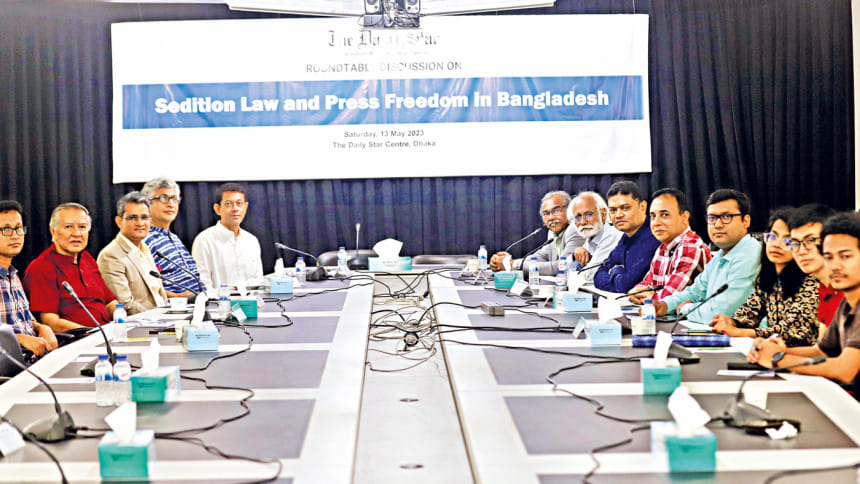
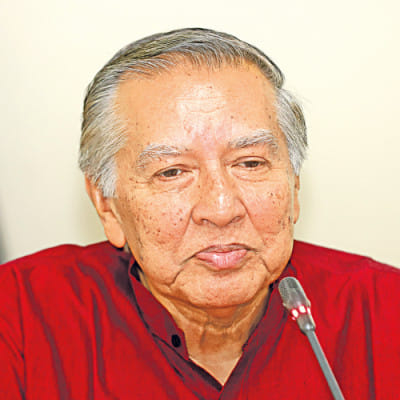
Mahfuz Anam, Editor & Publisher, The Daily Star
The current laws governing press freedom have their roots in the colonial era, as we continue to uphold the Penal Code of 1860 and its addition, the sedition law. The extent to which our laws reflect our own ideology versus the influence of the British colonial legacy has not been adequately emphasised in our previous discussions on press freedom. It is crucial to recognise that these laws originated from the colonial era, reflecting a mindset of control over the public and its representatives, still linger among us.
We have had exhaustive discussion about the Digital Security Act (DSA). However, the sedition law, which has recently been questioned in the Supreme Court of India and is currently being deliberated upon in the Lahore High Court of Pakistan, has not yet garnered sufficient attention in our country. As the judiciaries of these countries are reevaluating and reconsidering the law, it prompts us to discuss whether we can initiate similar discussion in Bangladesh, particularly within the higher judiciary. Today, our main objective is to delve into a detailed discussion regarding sedition law and its impact on press freedom.

Emraan Azad, Law Desk In-Charge, The Daily Star & Assistant Professor in Law, Bangladesh University of Professionals
The Penal Code of 1860, initially formulated by Lord Macaulay on behalf of the British government, did not include sedition law. In 1898, the provision on sedition was incorporated into the Penal Code through section 124A, which India, Pakistan and Bangladesh inherited in their respective post-independence societies. On the eve of this law's enactment, Rabindranath Tagore, in his speech at the Town Hall in Calcutta, stated, "The more and the freer the press, naturally the less the country can hide." I find this sentiment highly relevant when we talk about press freedom. Government often tries to spread positivity by saying that, unlike in previous regimes, there now exist numerous newspaper outlets, both in physical and digital forms. However, we must question whether this alone truly encompasses the essence of press freedom.
Last year, India's Supreme Court, in SG Vombatkere v Union of India (2022), declared that the sedition law is not a good legislation. The central government was given time to reexamine and reconsider the law, and during this period, all pending trials, appeals, and proceedings related to charges under section 124A were put on hold.
Likewise, in Pakistan, the Lahore High Court declared section 124A as ultra vires of the Constitution, invalidating its legal force.
Unfortunately, in independent Bangladesh, laws such as the Information and Communication Technology (ICT) Act and the DSA continue to reflect the presence of spirit of colonial sedition law. References can be made to sections 21, 28, 29, 31, and 32 of the DSA, which have inherited the spiritual influence of the sedition law as well as other colonial laws such as sections 99A, 108, 295A, and 499 of the Code of Criminal Procedure 1898, and the Official Secrets Act 1923.
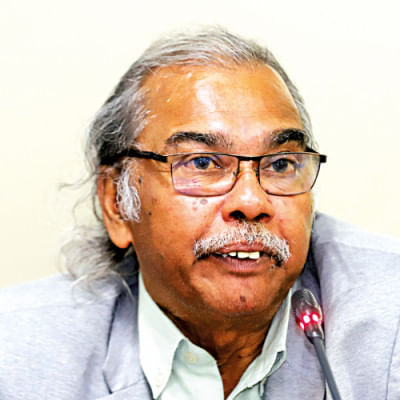
Faruq Faisel, Regional Director, Article 19, South Asia
The Official Secrets Act has been in effect since the British colonial period. The prolonged detention of Prothom Alo journalist Rozina Islam at the Ministry of Health was primarily aimed at determining which law should be applied to her situation. As Rozina did not publish the acquired information on any digital platforms, they could not charge her under the DSA. Eventually, after extensive deliberations yielded no evidence, she was arrested under the Official Secrets Act. This law, along with the sedition law, should be amended.
Moreover, criticism of our relationship with a friendly foreign country is often subject to legal limitations if we deeply examine article 39 of the Constitution. When the conflict broke out in Ukraine, the entire world condemned it, but it took us time to gather the courage to do the same. Therefore, we should reevaluate restrictive provisions.
In my opinion, a law is necessary to ensure people's rights on digital platforms. However, the current law we have in place fails to fulfill its purpose of safeguarding people's digital security, which is why it should be repealed.
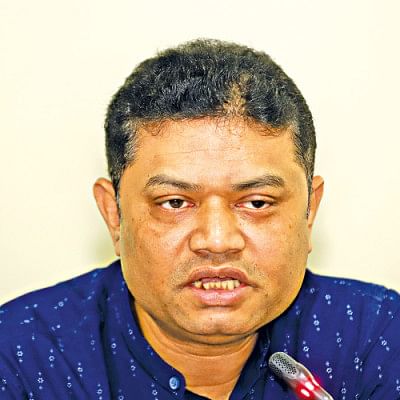
Jyotirmoy Barua, Bar-at-Law & Advocate, Supreme Court of Bangladesh
The Code of Criminal Procedure, which came into force in 1898 and we currently use, is also employed by India, Nepal, and Pakistan. However, India made constructive changes to it in 1973. Unfortunately, the structure of our Bangladeshi laws offers little breathing space. Despite the opportunity to foster a more progressive and transformative legal environment, we have made minimal progress in the past 52 years.
While checking the constitutionality of section 54 of the Code of Criminal Procedure, in 2003, the High Court Division identified that the application of provisions like sections 54 and 167 relating to arrest/detention and remand to be contradictory to fundamental rights of the people. Thereafter, the government enacted a new law to safeguard people's right to be protected from arbitrary arrest and custodial torture/death. Many laws have undergone modifications and been amended from 2003 to 2016. Drawing inspiration from those instances, we can observe that challenging specific oppressive provisions of laws and successfully amending them are indeed feasible.
Certain aspects of article 39 of the Constitution directly conflict with article 19 of the ICCPR, which states that anyone seeking to impose restrictions on the press or freedom of expression/speech must demonstrate its legal necessity. Some ideas within article 39 have become outdated and irrelevant over time. As article 39 serves as the foundation for many other laws, the absence of its amendment prevents progress in other areas as well.

Zillur Rahman, Executive Director, Centre for Governance Studies
The existence of the DSA renders it impossible to have a free and fair election in Bangladesh. Mere reformation of the DSA will fall short; it must be completely abolished. Besides repressive laws, the government also uses other means to gag freedom of speech. The fear of being taken out of context and misinterpreted, leading to sedition, hinders meaningful discussions on significant matters. Therefore, we need to address the prevailing culture of fear along with the thought to amend repressive laws.

Mohammad Tanzimuddin Khan, Professor, Department of International Relations, University of Dhaka
The DSA relies on colonial laws such as the Evidence Act of 1872 and the Penal Code of 1860. The colonial rulers bore no responsibility for their actions within their colonial territories. Unfortunately, a similar mindset is evident in the current DSA, where the previous foreign colonial state has transformed into a native colonial state. The new rulers continue to frame laws through the lens of the older colonial system. Nothing will truly change until these colonial mindsets undergo a drastic transformation. Replacing the DSA with a new law alone cannot guarantee relief. Instead, a comprehensive reform of the entire political and social system is necessary.
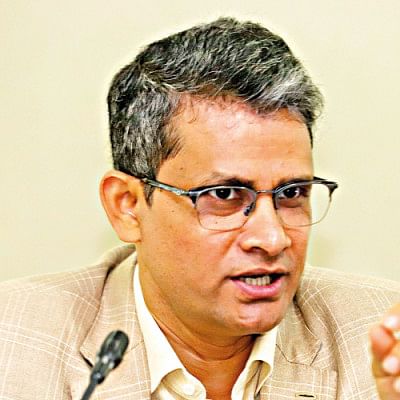
Tanjib-ul Alam, Bar-at-Law & Advocate, Supreme Court of Bangladesh
I do not observe any indications that the government intends to utilise sedition as a means to control press freedom. However, the existence of this particular law creates a precarious situation, akin to a sword hanging over a balloon.
It is crucial to examine the developments made by Indian and Pakistani Supreme Courts. The Pakistan Supreme Court has directly declared sedition unconstitutional, and it remains to be seen when the Pakistan government will take further action.
Interestingly, in the few significant cases won in the Supreme Court of Bangladesh, particularly those upholding human rights and protecting the rule of law, we largely followed the path set by judicial activists in India. Even when we achieved victory in the BLAST case (2003) relating to section 54 of the Code of Criminal Procedure, we primarily relied on the precedents set by the Lilavati Mehra case. However, recent trends reveal that the Bangladeshi Supreme Court is not always keeping pace with the judicial developments that are taking place in India and Pakistan. Nonetheless, we have obtained some verdicts against the government when our Supreme Court declared certain human rights abuses/violations unconstitutional in recent times.
When we challenged the previous version of the DSA, i.e. section 57 of the ICT Act, which was similar to an already rejected legal provision by the Indian Supreme Court, we witnessed a positive development. Considering these developments in both Indian and Pakistani higher courts, we perhaps have a reasonable chance in terms of challenging the sedition related law in Bangladesh.
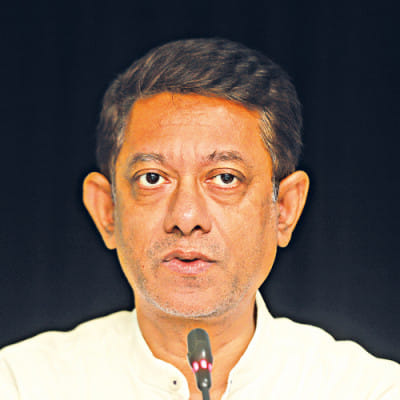
Shamim Reza, Professor, Department of Mass Communication and Journalism, University of Dhaka
Sedition law is one of the laws that serves as a foundation for the state to enact other laws, such as the DSA, or the ICT Act, which have significantly impacted our freedom of expression over the years. Journalists, in particular, bear the brunt of these laws, with around 30% of victims falling under the DSA are journalists; while the remaining 70% comprise ordinary individuals like students, teachers, farmers, and others who possess limited knowledge of the legal system. Therefore, an important issue to address at this point is the lack of public discourse surrounding the sedition law.
It is alarming to observe that there is no mention of the sedition law and the reasonable restrictions on freedom of expression in our educational curriculum. Likewise, the concept of freedom of expression is absent from our academic syllabi. Therefore, my suggestion regarding the sedition law is to present it in simplified terms so that it can be understood by the general public. Additionally, conducting interviews with individuals from diverse backgrounds, not solely legal experts, would provide a broader perspective on the matter. Establishing repositories of the cases, maintained by relevant professionals, would be beneficial in this regard.
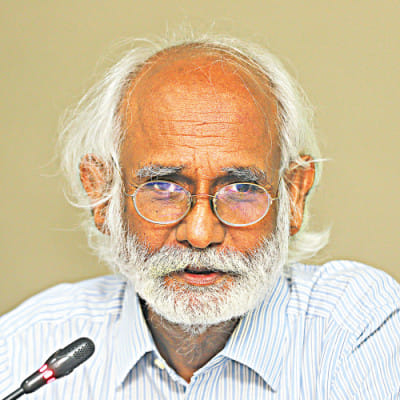
Z.I. Khan Panna, Advocate, Supreme Court of Bangladesh
Based on my experience, following the Six Points Movement of 1966, a handbill titled "Fight Back East-Bengal" was released from Pakistan Press in Barisal, owned by Shofiur Rahman, who was affiliated with Awami League. Bangabandhu Sheikh Mujibur Rahman, along with four or five others, faced accusations related to the handbill. To secure bail in this case, they had to travel to 19 different districts.
Subsequently, we witnessed the Agartala Conspiracy Case, which served as a pivotal moment in our struggle for freedom. When discussing the sedition law, it is crucial for everyone to be well-informed about its implications and the individuals it affects. All forms of oppressive legislation should be abolished.
The spirit of the liberation war entails fostering a society free from discrimination. However, if we persist in enacting regressive laws, it will contradict the very essence and spirit of the liberation war.
Recommendations
We should compile all notable instances of the most sensational misuse of the sedition law and the DSA, highlighting the gross violations of human rights or flagrant abuses of the legal system.
We may refer the victims of repressive laws to the organisations such as Article 19, Ain O Salish Kendro (ASK), Bangladesh Legal Aid and Services Trust (BLAST) and others who have the capacity to provide legal support at free of cost.
Additionally, we should gather and document all positive judgments that have emerged in Bangladesh since its independence, particularly those that uphold freedom of expression and press freedom. This comprehensive approach will provide us with valuable insights into the law's historical impact.
It would also be beneficial to gather regional and international examples to illustrate how other countries have dealt with similar issues and provide a broader perspective.
We should also analyse the parameters of "reasonable restrictions" under article 39 of the Constitution and compare them with global standards.
Furthermore, it is essential to review the curriculum of journalism schools with a view to aligning them with the changing landscape of media and the evolving understanding of press freedom.
We can create an online repository which would serve as a centralised platform for storing and accessing relevant information, cases, judgments, and best practices, aiding research and fostering a greater understanding of the subject-matter.

 For all latest news, follow The Daily Star's Google News channel.
For all latest news, follow The Daily Star's Google News channel. 



Comments